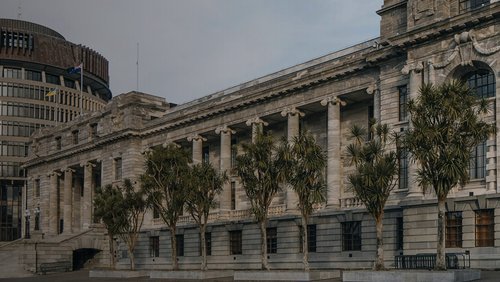18 Mar 2020
On 17 March, the Government announced a support package for the New Zealand economy. We take a look at what this means for engineers.
The scope of this package is unprecedented
At $12.1 billion, it’s equivalent to 4 percent of GDP and much larger than other countries’ recovery package.
At the moment, the tourist industry is immediately hurting but we are increasingly seeing impacts in other areas – like sport, hospitality and events. And a virus-triggered recession will have wider flow-on effects.
The Government has also signalled its Budget, due in May, will contain further recovery measures. We can also expect already signalled spending on infrastructure projects to continue or even expand, as the Government works to maintain economic activity, subject to protecting public health.
Planning for disruption
While you might not be seeing financial effects on your work right now, we all need both a plan to deal with the people implications of a wider Covid-19 outbreak and a plan to mitigate its economic effects.
There’s a range of scenarios to plan for, not just the worst case, which means thinking flexibly and planning to be adaptable. Many of us have had plenty of practice at this over the past few years, with earthquakes and other crises testing our sector. These skills will serve us well now. Change and upheaval can be seen solely as threats but they can also present opportunities to do things differently.
Our auditors Grant Thornton have developed some guidance to help businesses as well as a checklist for building a disaster response plan for businesses that they’re happy for us to share.
Download Grant Thornton disaster response plan checklist | 1.6 MB
For many engineers, supply-chain issues are becoming a key concern. Consultancy McKinsey has put out a briefing note designed to help leaders understand and prepare for Covid-19. It includes a list of supply-chain actions you should consider, both now and in the medium term.
Download McKinsey briefing note | 1.4 MB
The Government will subsidise wages for businesses who are hurting
Any business seeing more than a 30 percent month-on-month decline for any month between January and June this year (compared to last year) can apply for the wage subsidy package. Employers, contractors, sole traders and self-employed people are all eligible, as long as they have taken active steps to mitigate the effect of Covid-19.
Businesses can receive up to $585 a week per full-time worker and $350 a week per part-time worker – for up to 12 weeks, capped at $150,000 per business.
In return, the business must make best efforts to retain staff and pay them a minimum of 80 percent of their normal income during the subsidy period.
The Government has said they expect half of all businesses to take up the scheme.
Read more about the scheme and apply online
People having to self-isolate are eligible for support
Self-isolation is key in slowing the spread of Covid-19. People are now eligible for a leave payment if they need to isolate themselves.
Any workers, contractors or self-employed people who need to self-isolate for the required 14 days will be eligible to receive $585 a week (for full-time work) or $350 (for part-time work).
This payment isn’t available for people who can work from home. Nor is it available to people who leave New Zealand after 16 March and need to self-isolate on their return.
People sick with Covid-19 or caring for others are also eligible
If you are sick, or caring for others who are sick or self-isolating, then you are also able to access the leave payment of $585 a week (full-time) and $350 (part-time)
Employees aren’t required to have used any or all their paid leave entitlements before they can receive this payment, which can be paid for the entire duration of sickness.
Accessing the leave payment
This leave payment will be paid via employers, who need to apply.
Self-employed people are also eligible to apply for the leave payment.
In addition, the Government is looking to support essential services at and around our borders.
There’s also a tax relief package for businesses
Reintroducing depreciation on commercial and industrial buildings will reduce tax and create opportunities
The Government has announced that Inland Revenue will reintroduce depreciation on commercial and industrial buildings, at a rate of 2 percent diminishing value for all new and existing buildings, including hotels and motels.
This means that, with the value of the asset decreasing, the amount of tax owing on the building will also decrease. Commercial and industrial building owners can start reducing their provisional tax payments for the 2020/21 income year immediately.
This measure is intended to encourage investment in business premises and decrease their cost over time. It is also intended to improve business confidence and enable the capital cost of seismic strengthening to be depreciated.
It’s a potential opportunity for engineering firms working in this space, with this package worth $2.1 billion over several years.
The provisional tax threshold has lifted
If you will pay less than $5,000 income tax for the 2019/20 year, you won’t have to pay provisional tax for the 2020/21 year. Inland Revenue has previously required provisional tax for those who paid over $2,500.
The low value asset write-off ceiling will also lift
Inland Revenue will allow low-value assets up to $5,000 to be written off for the next tax year, before reverting to $1,000 in the longer term.
Inland Revenue gets greater discretion
Inland Revenue will have a time-limited ability to refrain from exacting the interest on tax debt, if the taxpayer can’t pay on time because of the impacts of Covid-19.
The public health response is being scaled up
The Government will boost public health funding by $500 million, including:
- Scaling up public communication to ensure people have practical advice and support on how to contain the virus and stay healthy, as well as how to self-isolate
- Supporting public health units to test and trace cases in communities
- Additional support for intensive care capacity and equipment to hospitals
- Additional resource to GPs and primary care, including funding to improve video conferencing and telehealth consultations
- Increasing support for Healthline
The aviation sector will receive targeted support
The Government’s package includes a potential $600 million for the aviation sector, mostly to support airports. It’s also in talks with Air New Zealand.
The Government says it’s focused on keeping air routes open to support returning New Zealanders and to keep vital supply chains open.




